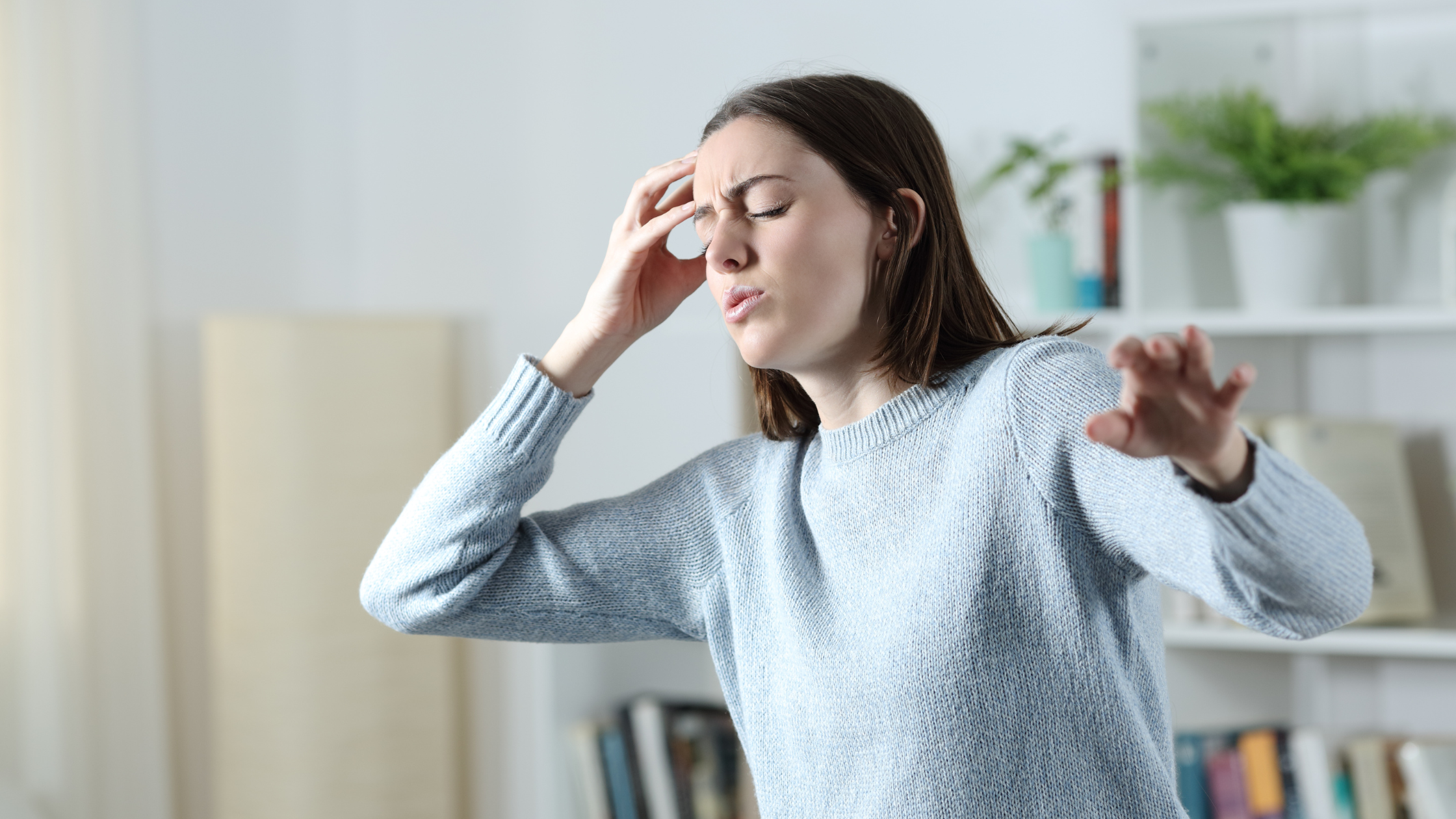Dizziness When You Stand: Normal or a Warning Sign?
If you’ve ever stood up and felt lightheaded, you’re not alone. Sometimes it’s just a harmless moment, but other times, it can signal something more serious.
I’m Dr. Rebecca Berens, family physician and founder of Vida Family Medicine. In this post, I’ll explain why dizziness when standing happens, what causes it, and how to know whether it’s a mild, reversible issue or a sign that you should see a doctor.
Why Does Standing Make You Dizzy?
When you move from sitting or lying down to standing, your body has to adjust quickly. Gravity pulls blood downward, and your body needs to push it back up to your brain. To do this, your heart rate increases slightly and your blood pressure rises.
If that process doesn’t work smoothly, less blood reaches your brain—and you feel dizzy or lightheaded.
This phenomenon is called postural orthostatic hypotension, and while it’s very common, it can be triggered by a range of factors.
Common (and Often Harmless) Causes
Most people have felt dizzy when standing in hot weather or after being outside for a while. Here’s why:
Heat: When you’re hot, your blood vessels dilate to release heat. This lowers your blood pressure, making it harder for your body to push blood back up to your brain when you stand.
Dehydration: If you’ve been sweating a lot, having vomiting or diarrhea due to a GI bug, or not drinking enough fluids, your blood volume is reduced, and there’s simply less circulating fluid to keep your brain supplied.
For many people, cooling off, rehydrating, and resting are enough to correct these mild causes.
When It Might Be More Serious
Sometimes dizziness is linked to underlying health issues that need medical attention. These include:
Anemia: Low red blood cell counts mean less oxygen and blood volume available, which can make dizziness worse when you stand.
Malnutrition: Restrictive diets or poor intake can cause low blood volume, anemia, and weak heart or muscle function, all of which increase dizziness.
Autonomic nervous system dysfunction: Conditions like POTS (postural orthostatic tachycardia syndrome) or nervous system disorders can interfere with the body’s ability to regulate blood pressure and heart rate.
Post-infection changes: Some people experience dizziness after illnesses such as long COVID, which can affect the autonomic nervous system.
If dizziness is frequent, severe, or accompanied by fainting, it’s important to get evaluated by a doctor.
What You Can Do at Home
If dizziness when standing happens only occasionally, try these simple steps:
Cool down. If you’re overheated, get into a cooler space.
Hydrate. Drink water or an electrolyte beverage, especially if you’ve been sweating.
Eat regularly. Skipping meals or restrictive dieting can make dizziness worse. Aim for balanced, consistent meals.
Rest and monitor. If the symptoms resolve with these measures, it’s often nothing serious.
When to Seek Medical Help
Call your doctor if:
You faint or lose consciousness.
Dizziness is happening often, even after hydrating and eating well.
You have signs of anemia, malnutrition, or another health condition.
Your doctor may recommend lab tests, a physical exam, or even cardiac testing to get to the root cause. Identifying the reason early can prevent injuries and complications.
Final Thoughts
Feeling lightheaded when you stand up is common, but it’s not something to ignore if it’s happening often or severely. While mild cases can be solved with hydration, cooling down, or better nutrition, persistent dizziness can signal a more serious condition.
At Vida Family Medicine, we help patients identify the cause of symptoms and find realistic, compassionate solutions to improve health.
📞 If you’re in Texas and looking for a primary care physician, I’d love to support you. Visit www.vidafamilymed.com to learn more or schedule an appointment.
Want to Learn More? Watch the Full Video
In this video, I explain why dizziness happens, how to tell if it’s harmless or concerning, and practical steps to feel better.
👉 Watch the full video here and don’t forget to subscribe to the Vida Family Medicine YouTube channel for more compassionate, evidence-based health content.

